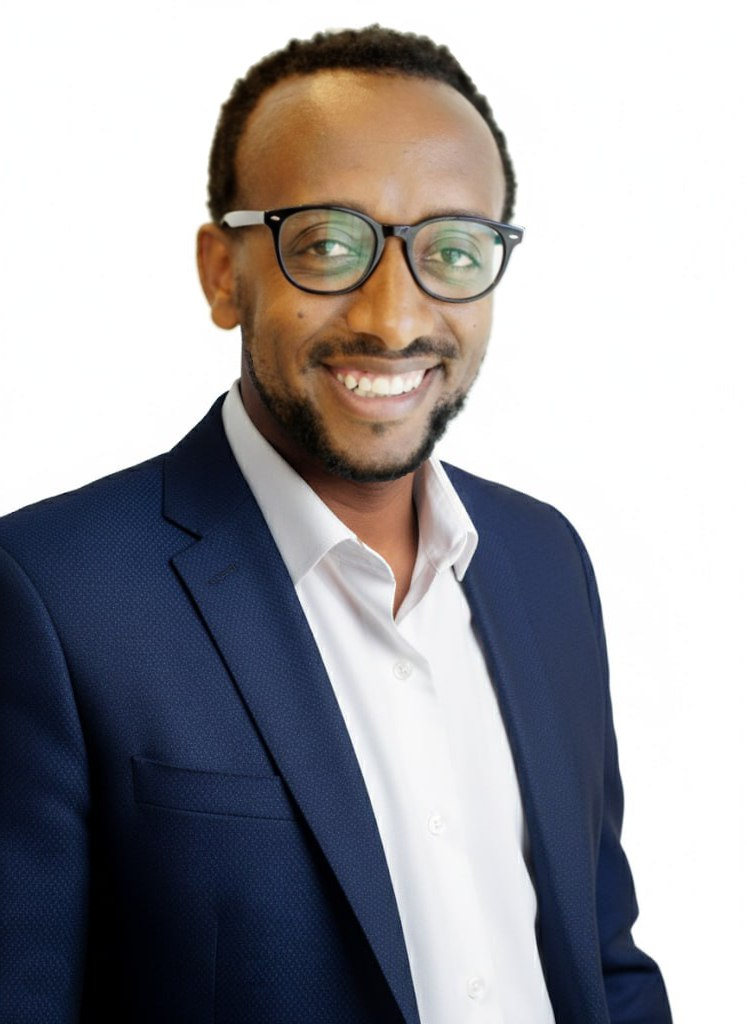Programme led by
Royal College of Surgeons in Ireland, 123 St Stephens Green, Dublin 2, Ireland
Royal College of Surgeons in Ireland, 123 St Stephens Green, Dublin 2, Ireland

Domain / Application Expertise
Dr. Geletaw Sahle Tegenaw received his Ph.D. in Engineering Science from Vrije Universiteit Brussel (Belgium), a Postmaster Advanced Course certification in Technologies for Active and Healthy Ageing from the University of Trento (Italy), an M.Sc. in Health Informatics from Addis Ababa University (Ethiopia), and a B.Sc. in Computer Science from Jimma University (Ethiopia). He also earned the Machine Learning Scientist with Python certificate in collaboration with DataCamp and the VUB Doctoral School, and the Machine Learning Summer School (MLSS 2019) certificate in London. Furthermore, he has been awarded more than ten grants, fellowships, scholarships, and travel awards in support of his research, conference presentations, and professional development activities.
As a NeuroInsight postdoctoral fellow, he is exploring and developing multimodal models for seizure detection using EEG, learning informative representations from short EEG windows to enable real-time monitoring and analysis. He is also applying machine learning and deep learning techniques for ADHD biomarker identification using EEG as a visiting researcher at Trinity College Dublin.
Prior to his NeuroInsight fellowship, he gained extensive experience in both industry and academia, collaborating with multidisciplinary teams in Belgium (ETRO, VUB), Italy (UniTrento), and Ethiopia (BIOMAI, CBMP, JU, AFT). He has led and contributed to projects implementing state-of-the-art technologies to deliver impactful, data-driven outcomes in the health, education, and real estate sectors. His professional experience includes serving as a data science consultant and team lead, where he led cross-functional teams in business analysis, software development, infrastructure management, and data science, overseeing the end-to-end delivery of projects and ensuring alignment between technical strategy and business objectives. He also contributed to climate-sensitive disease modeling at the Biomedical Imaging and Artificial Intelligence Research Laboratory (BIOMAI) and the eCHIS usability project at Jimma University’s Capacity Building and Mentorship Program (CBMP) Center. During his Ph.D. at the Department of Electronics and Informatics (ETRO), Vrije Universiteit Brussel (VUB), under the supervision of Prof. Dr. Bart Jansen, Prof. Dr. Ir. Jan Cornelis, and Prof. Dr. Frank Verbeke, he designed and developed a novel clinical decision support instrument and clinical pathway algorithms for low-resource healthcare settings, combining symbolic (rule-based) and non-symbolic (data-driven) AI approaches. Prior to his doctoral studies, he worked as a trainee and research intern on the Horizon 2020 project at the University of Trento, Italy, as part of the Advanced Course in Technologies for Active and Healthy Aging. Furthermore, he has co-authored peer-reviewed publications, presented at conferences and workshops, and demonstrated and evaluated products.
His research, at the intersection of data science and neurology, applies advanced techniques to EEG time series data and aims to develop models, including multimodal approaches, to improve epileptic seizure detection and ADHD diagnosis (or biomarker identification). He also collaborates with multidisciplinary teams to develop multimodal models for forecasting climate-sensitive disease outbreaks using spatio-temporal data, as well as multimodal clinical decision support systems that assist and streamline healthcare professionals’ workflows. Through these efforts, he focuses on building democratized technologies that extend beyond hospital settings, enabling the deployment and utilization of clinical AI models in ambulatory, home, under-resourced, and real-time environments.